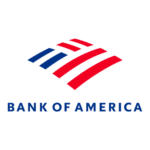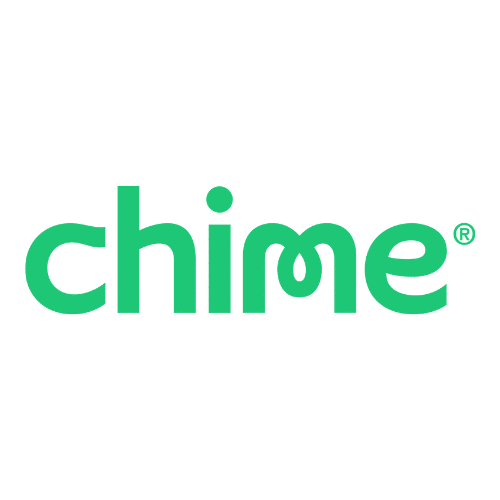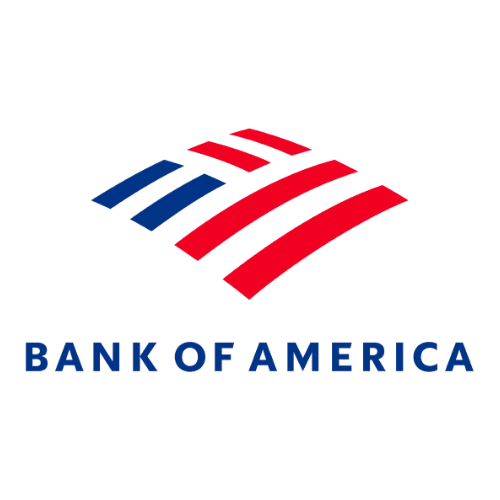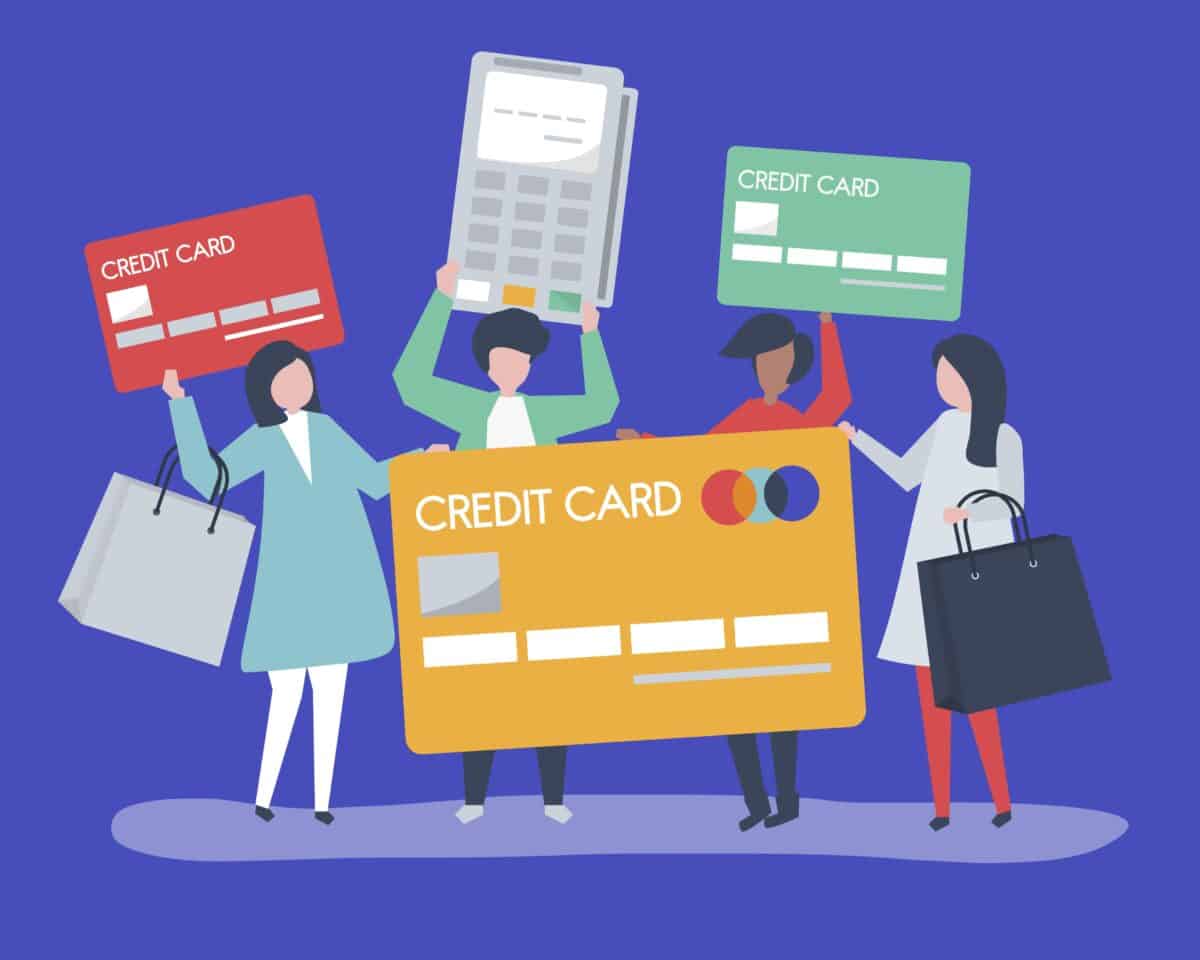9 Easy Approval Credit Cards With $1,000 Limits For Bad Credit
If you have a bad credit score and are looking for guaranteed approval credit cards with $1,000 limits for bad credit, compare these alternatives. We list their features, pros, and cons below.

Table of Contents
- Secured Credit Cards With a $1,000+ Credit Limit
- 1. Applied Bank® Secured Visa® Gold Preferred® Credit Card
- 2. Chime® Credit Builder Visa® Credit Card
- 3. Savings Secured Platinum Rewards Credit Card
- 4. Discover it® Secured Credit Card
- 5. OpenSky® Secured Visa® Credit Card
- 6. Bank of America® Customized Cash Rewards Secured Credit Card
- 7. First Progress Platinum Elite Mastercard® Secured Credit Card
- Unsecured Credit Cards with $300 to $1,000 Credit Limit
- What Is the Difference Between a Secured and an Unsecured Credit Card?
- How to Get a $1,000 Credit Card with Bad Credit?
- What is the Easiest Credit Card to Get with Bad Credit?
- Minimum Credit Score Required For an Unsecured Card
- Can I Get a Rewards Card with Bad Credit?
- How To Build Credit With a Credit Card
- FAQs
Finding guaranteed approval credit cards with $1,000 limits for bad credit may be challenging, but there are options available.
Many credit cards for bad credit offer guaranteed approval – providing that you meet the additional requirements that these cards may have. Secured credit cards are often easiest to get approved for with a $1,000 limit, as you’ll be required to put down a security deposit which sets your card limit. They are a good way to build credit, even if you have poor credit or a past bankruptcy. The best secured credit card that approves applicants with bad credit is the Applied Bank® Secured Visa® Gold Preferred®. This card requires no credit check and claims to provide guaranteed approval to its applicants who meet the basic eligibility requirements.
There are a few options for unsecured credit cards for poor credit too but they usually have a lower starting credit limit of a maximum of $500. You can get a credit limit increase after using your card responsibly and building credit but it takes time to develop a good score. Surge® Platinum Mastercard® is the best choice for an unsecured card that approves applicants with bad credit too.
We’ve rounded up the best credit cards for bad credit below, along with their requirements, pros and cons, and eligibility requirements. Our list includes both secured credit cards and unsecured credit cards for people who are particular about the credit line but have poor credit.
Secured Credit Cards With a $1,000+ Credit Limit
Secured credit cards require a security deposit for approval which sets the credit limit of the card. The deposit helps lower the risk of lending which allows easy approval, even with bad credit. The deposited amount is refundable upon closing the account in good standing or getting a card upgrade.
Since the amount you can spend is equal to the deposit you make, you can have a credit limit of $1,000 or above by opting for secured credit cards. Many of these cards also allow you to further increase your credit line by making additional deposits after your application has been approved.
The list of secured credit cards below all have a credit limit of $1,000 or above and are easy to get approved for with bad credit.
| Lender | Scholaroo rating | Regular APR | Credit Score |
|---|---|---|---|

Applied Bank® Secured Visa® Gold Preferred® Best for low interest rates Visit website | 9.99% | N/A | |

Chime® Credit Builder Visa® Credit Card Best for no fees and no interest Visit website | 0% | N/A | |

Savings Secured Platinum Rewards Best for travel Visit website | 17.24% | N/A | |

Discover It® Secured Best for a welcome offer Visit website | 28.24% | N/A | |

OpenSky® Secured Visa® Best for borrowers without a bank account Visit website | 22.39% | N/A | |

Bank of America® Customized Cash Rewards Secured Great secured card with cash back rewards Visit website | 28.24% | N/A | |

First Progress Platinum Elite Mastercard® Best for approval within minutes Visit website | 25.24% | N/A |

Applied Bank® Secured Visa® Gold Preferred®
Best for low interest rates

Chime® Credit Builder Visa® Credit Card
Best for no fees and no interest

Savings Secured Platinum Rewards
Best for travel

Discover It® Secured
Best for a welcome offer

OpenSky® Secured Visa®
Best for borrowers without a bank account

Bank of America® Customized Cash Rewards Secured
Great secured card with cash back rewards

First Progress Platinum Elite Mastercard®
Best for approval within minutes
1. Applied Bank® Secured Visa® Gold Preferred® Credit Card
2. Chime® Credit Builder Visa® Credit Card
3. Savings Secured Platinum Rewards Credit Card
4. Discover it® Secured Credit Card
5. OpenSky® Secured Visa® Credit Card
6. Bank of America® Customized Cash Rewards Secured Credit Card
7. First Progress Platinum Elite Mastercard® Secured Credit Card
Unsecured Credit Cards with $300 to $1,000 Credit Limit
Unsecured credit card approval generally depends on the credit score of the applicant.
There are a few unsecured card options available to people with bad credit but they have a low initial credit limit that usually starts from $250 and goes up to a maximum of $500 for beginners. Moreover, if there are any initial fees associated with the card, like annual fees or a signup fee, they will be automatically deducted from the available credit on your card upon activation. This will reduce your spending limit even further.
Some cards like Surge® Platinum Mastercard®, do offer an initial credit line between $300 to $1,000 but that depends on how good your score is. The better your credit score is, the higher the chances of getting a higher initial limit.
Following are the options for the best unsecured credit cards with easy approval and better credit limits.
| Lender | Scholaroo rating | Regular APR | Credit Score |
|---|---|---|---|

Surge® Platinum Mastercard® Best for an unsecured Mastercard Visit website | 29.99% | 300+ | |

Reflex® Platinum Mastercard® Best for borrowers with no security deposit Visit website | 29.99% | 300+ |

Surge® Platinum Mastercard®
Best for an unsecured Mastercard

Reflex® Platinum Mastercard®
Best for borrowers with no security deposit
1. Surge® Platinum Mastercard®
2. Reflex® Platinum Mastercard®
What Is the Difference Between a Secured and an Unsecured Credit Card?
When you pay for goods or services there is no difference between secured and unsecured credit cards. However, the application process is different, and so are the terms.
Secured Credit Cards features
- Requires a security deposit as collateral, which is generally refundable on closing the account or getting an upgrade
- Credit limit is usually equal to the amount of the security deposit.
- No credit check required
- Primarily designed for people with limited or poor credit histories.
- Helps build or rebuild credit when used responsibly and payments are made on time.
- After establishing a good credit history, some card issuers may offer to upgrade the cardholder to an unsecured credit card and return the security deposit.
- Lower costs compared to unsecured credit cards
- Allows limits equal to or higher than $1,000 even with bad credit.
Unsecured Credit Cards features
- No collateral or security deposit is required.
- Credit check is required
- Credit limit is determined based on creditworthiness and other financial factors like income, and repayment history.
- Generally available to individuals with a fair to excellent credit score.
- Building and maintaining a good credit history is crucial to qualify for higher credit limits and better terms.
- More common
- Lower initial credit limits with bad credit which generally go up to a maximum of $500.
How to Get a $1,000 Credit Card With Bad Credit?
Secured credit cards can give you a $1,000 or above credit limit even with bad credit. You will be required to pay for a security deposit and meet the basic eligibility criteria to get approved. The eligibility criteria usually require the applicant to be at least 18 years old, have a Social Security number or an eligible alternate, and have a U.S. address.
If you want to get an unsecured card, you will most likely need to go through a credit check. If you have bad credit, you will need to look for a card that allows approval with a poor score and then apply for it online.
The following are the main steps to apply for a credit card:
- Find out your credit score: Through your credit report, you will get an idea of your history and the level of your credit score. This will help you when comparing card companies as different ones may have different credit requirements.
- Get pre-approval: Get a qualification check with the credit card companies you are considering. This will help you get an idea of the rates you can get and you will be able to compare them better.
- Compare credit cards: Compare all the credit cards that you are able to qualify for. If you have bad credit, you will have higher chances of approval for cards that do not have a credit check or a minimum credit requirement like secured credit cards and student cards. You should look at interest rates, fee types, and rewards and compare other benefits of the cards to find the best one.
- Collect the required documents and information: The eligibility requirements vary from one company to another. Generally, most credit card companies will ask you for general information about yourself like your name, address, phone number, employment, and income information. You will most likely be required to submit an eligible proof of identification that will help verify your name and age. Credit card companies also require the individual to have a U.S. address and they may also ask for proof related to that. Moreover, an SSN, ITIN, or passport may be required to apply and get approved.
- Submit an online application: Once you have chosen a card, you can apply for it online through the company’s website. Many companies encourage applicants to apply online as it takes less time to get approval that way. If you meet all the eligibility requirements and the information provided is verifiable, you may be able to get a decision within minutes of submitting the application. However, the actual card may take a few days to reach you by mail.
- Receive your card: After approval, it may take up to 10 business days for the card to arrive in the mail. Some credit card companies issue the credit card number right after approval through email or their mobile apps which allows instant use online and through digital wallets even before you get the actual card in hand.
What is the Easiest Credit Card to Get with Bad Credit?
When looking for guaranteed approval credit cards with $1,000 limits for bad credit you’ll find the easiest cards to get approved for are secured credit cards. Chime® Credit Builder Visa® Credit Card is one of the best secured credit cards which charges no annual fee and has 0% interest rates on purchases.
The approval for secured cards is not based on credit and they do not require a minimum credit score or any kind of credit check. The card issuer takes a security deposit which reduces the risk of issuing the card to those who have bad credit. This is because, in case of a missed payment, the credit card company simply deducts the amount from your security deposit. However, late payments affect your credit history negatively and are best avoided.
Your security deposit will also set your credit limit. Most secured credit cards have a maximum security deposit limit of around $2,500 which is the maximum credit line you can have for those cards too. Some may even allow you to go up to $5,000, like the Bank of America® Customized Cash Rewards Secured and the Applied Bank® Secured Visa® Gold Preferred® credit cards.
What Is the Minimum Credit Score Required For an Unsecured Card?
Usually, most no-deposit cards require the credit score to be at least at the fair level for approval. A FICO score between 580 and 669 is categorized as ‘fair’ credit and may get you approved for an unsecured credit card. However, with such a score, you will have to pay much higher interest rates which may be around 24% or above. Moreover, companies that approve applicants with poor or fair credit scores may charge higher annual fees and offer fewer rewards.
Applicants having around 700 FICO scores or above can access pretty much any credit card including elite cards. They can enjoy much lower interest rates, high rewards, and lower fees.
Can I Get a Rewards Card with Bad Credit?
There are options for cards that offer rewards to people with below-average credit or no credit. Discover it® Secured Credit Card, Bank of America® Customized Cash Rewards Secured Credit Card, and Savings Secured Platinum Rewards Credit Card are three examples of such cards. These cards generally do not require a credit history for approval and their decision depends on paying the minimum deposit and showing proof of sufficient income to make repayments.
Some of the rewards on using these cards include cashback rewards on spending, welcome bonuses, and point rewards that you can redeem in multiple ways like for travel, as gift cards, and also as cash back.
How To Build Credit With a Credit Card
Both an unsecured credit card and a secured credit card issuer will provide monthly reports on your payment and balance history to at least one major credit reporting bureau. In most cases, these reports are sent to all three major bureaus: TransUnion, Equifax, and Experian.
If you consistently make timely payments and keep a low balance, these positive reports will improve your credit score and contribute to building a favorable credit history. But similarly, if you have late payments or carry a high balance, your credit score will be negatively impacted.
Maintaining a low credit card balance is essential to maintaining a low credit utilization rate. You can determine your credit utilization rate by dividing your credit card balance by your total credit limit. E.g. if you have a credit card with a $2,000 limit and a $1,000 balance, your utilization rate would be 50%, indicating that you are using 50% of your available credit.
A lower utilization rate translates to a better credit score. You can easily improve your credit score by several points by keeping a low (or no) balance on your credit card accounts and ensuring that your credit utilization stays below 30%.
FAQs
What is the easiest credit card to get approved for?
The Chime® Credit Builder Visa® credit card, Applied Bank® Secured Visa® Gold Preferred® credit card, Savings Secured Platinum Rewards credit card, Discover it® Secured credit card are easy to get approved for as they don’t require a minimum credit score.
Is there a credit card I can get with a 500 credit score?
You can get cards like the Capital One Quicksilver Secured Cash Rewards credit card with a 500 credit score, and you’ll earn rewards like 1.5% cash back on all purchases. You can also apply for the Bank of America® Unlimited Cash Rewards credit card that comes with similar rewards.
How much should you spend on a $1,000 credit limit?
If you’re looking for guaranteed approval credit cards with $1,000 limits for bad credit you will typically need to choose a secured credit card and put down a security deposit that will serve as your initial credit limit. Some lenders will increase your credit limit after six on-time monthly payments.
Can I get a credit card with a $1,000 limit if I have bad credit?
Yes, but you may have to put down a security deposit. That’s because you will likely have a better chance of approval if you choose a secured credit card, where your security deposit also serves as your initial credit limit. There are unsecured cards that offer higher limits even if you have bad credit, like the Surge® Platinum Mastercard® credit card.
What is the easiest unsecured card to get?
The easiest unsecured cards to get are those that accept applicants with poor credit like the Surge® Platinum Mastercard®. However, such cards usually come with much higher APRs, no rewards, and high annual fees.











